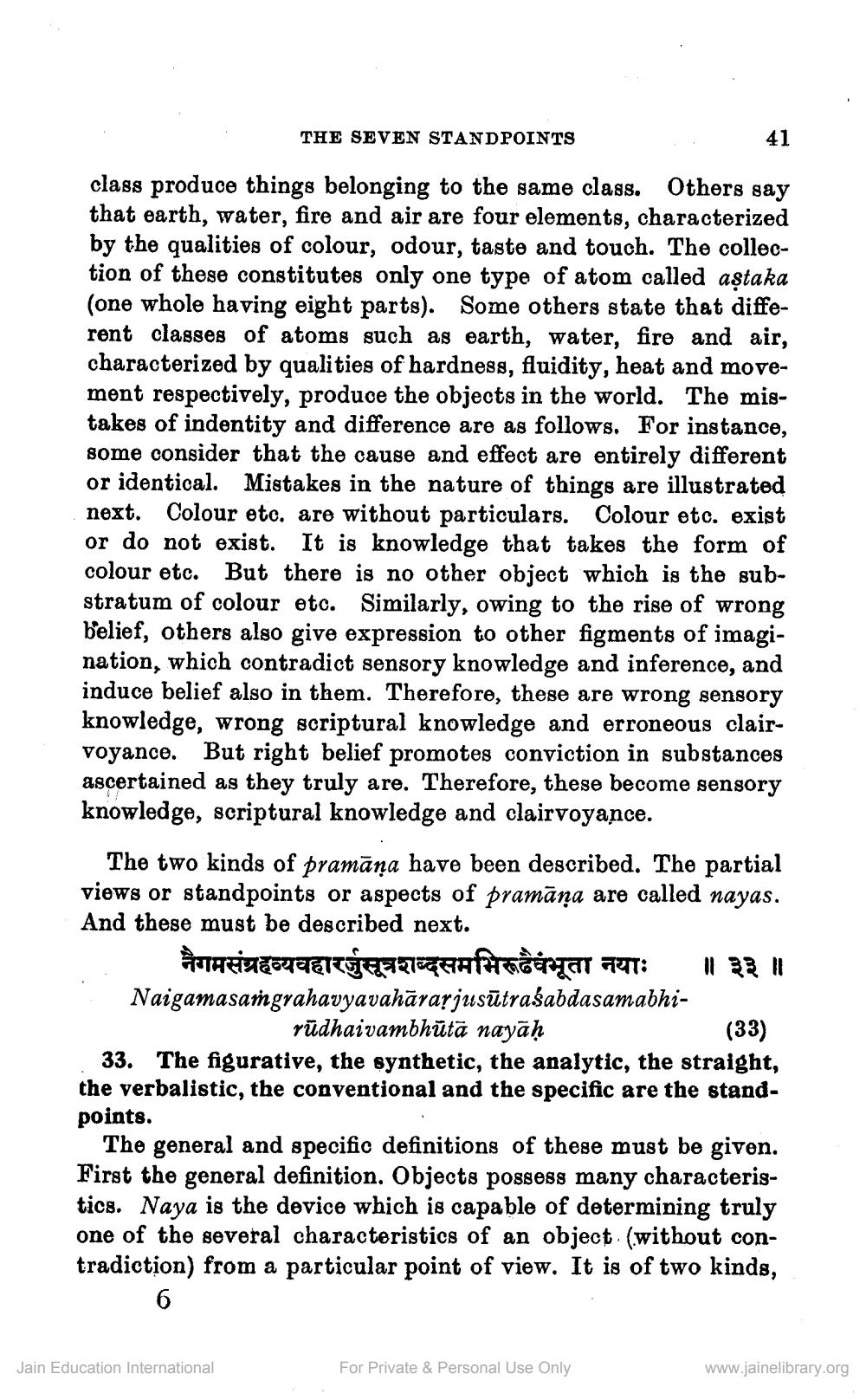________________
THE SEVEN STANDPOINTS
41
class produce things belonging to the same class. Others say that earth, water, fire and air are four elements, characterized by the qualities of colour, odour, taste and touch. The collection of these constitutes only one type of atom called aştaka (one whole having eight parts). Some others state that different classes of atoms such as earth, water, fire and air, characterized by qualities of hardness, fluidity, heat and movement respectively, produce the objects in the world. The mistakes of indentity and difference are as follows. For instance, some consider that the cause and effect are entirely different or identical. Mistakes in the nature of things are illustrated next. Colour etc. are without particulars. Colour etc. exist or do not exist. It is knowledge that takes the form of colour etc. But there is no other object which is the substratum of colour etc. Similarly, owing to the rise of wrong belief, others also give expression to other figments of imagination, which contradict sensory knowledge and inference, and induce belief also in them. Therefore, these are wrong sensory knowledge, wrong scriptural knowledge and erroneous clairvoyance. But right belief promotes conviction in substances ascertained as they truly are. Therefore, these become sensory knowledge, scriptural knowledge and clairvoyance.
The two kinds of pramāna have been described. The partial views or standpoints or aspects of pramāņa are called nayas. And these must be described next.
नैगमसंग्रहव्यवहारर्जुसूत्रशब्दसमभिरूद्वैवंभूता नयाः ॥ ३३ ॥ Naigamasangrahavyavahārarjusūtraśabdasamabhirūdhaivambhūtā nayāḥ
(33) 33. The figurative, the synthetic, the analytic, the straight, the verbalistic, the conventional and the specific are the standpoints.
The general and specific definitions of these must be given. First the general definition. Objects possess many characteristics. Naya is the device which is capable of determining truly one of the several characteristics of an object (without contradiction) from a particular point of view. It is of two kinds,
6.
Jain Education International
For Private & Personal Use Only
www.jainelibrary.org




